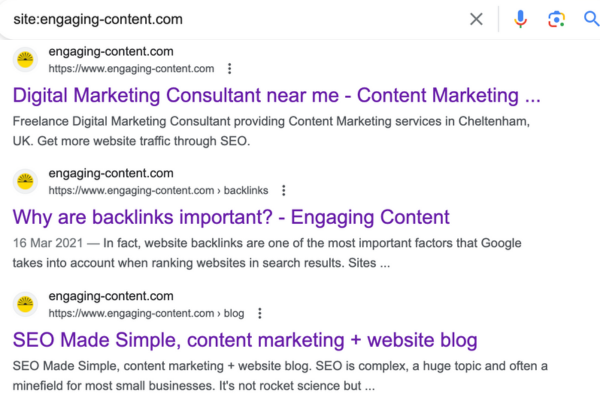Introduction
In today’s digital age, having a website is not enough. It’s crucial to ensure that your website is visible to search engines, especially Google, which dominates the search engine market. But how do you make your website visible on Google? This blog post will provide you with five practical steps on how to make your website visible on Google and other search engines.
#1 Understand Search engine Optimisation (SEO)
The first step in making your website visible on Google is understanding the concept of Search Engine Optimization (SEO). SEO involves implementing strategies and techniques that can help improve your site’s visibility in search engine results pages (SERPs). The higher your site ranks in SERPs, the more likely it is for users to click on it. The two types of SEO:
- On-page SEO – On-page SEO involves optimising individual webpages so they rank higher and earn more relevant traffic. This includes content creation, keyword optimisation, and improving meta descriptions and title tags.
- Off-page SEO – Off-page SEO refers to actions taken outside of your own website that impact your rankings within SERP. These include backlinks from other sites, social media marketing, and guest blogging.
#2 Keyword Research and Optimisation
Keyword research and optimisation is a critical part of effective SEO. Keywords are words or phrases that users type into search engines when looking for information online. By incorporating relevant keywords into your content, you increase the chances of your site appearing in search results when users search for those keywords.
After all, what do we all do when we want to find something or answer a question? We Google it!
Start by identifying keywords relevant to your business or industry using tools like Google Keyword Planner or tools such as Ubersuggest (we also use an awesome all-in-one SEO tool which does keyword research and more!). Once you have a list of keywords, incorporate them naturally into your content, meta descriptions, URLs, and title tags. Always write for the reader not the search engine!
Remember not to overdo it with keywords as this can lead to keyword stuffing – a practice frowned upon by Google which can lead to penalties and your content being blocked.

#3 Create Quality Content
Content is king when it comes to making your website visible on Google. Quality content not only attracts visitors but also keeps them engaged on your site longer – a factor that can boost your site’s ranking in SERPs.
Ensure that you regularly publish original, valuable content that answers questions or solves problems for users. Use images, infographics, videos, and other multimedia elements to make the content more engaging.
Also remember to structure your content well with headings (H1s), subheadings (H2s), bullet points etc., as this makes it easier for both users and search engines to read through
Google’s helpful content update is a good reason to create quality content that is helpful, relevant and relatable to your target audience.

#4 Build Backlinks
Backlinks are links from other websites pointing back to yours. They’re crucial for off-page SEO because they signal credibility and authority to search engines – if reputable sites link back to yours then it must be providing valuable information.
You can build backlinks through guest blogging on reputable sites in your industry or by creating high-quality content that others want to link back to.

#5 use social media

Conclusion
To make a website visible on Google requires understanding SEO principles such as keyword research, website optimisation; the importance of creating quality content; building backlinks and using social media effectively among others things mentioned above. There is no overnight success story here! It takes time, effort and patience but with consistent application these strategies will help improve online presence significantly over time leading towards the ultimate goal of a highly visible website with increased traffic, conversions and of course sales!


